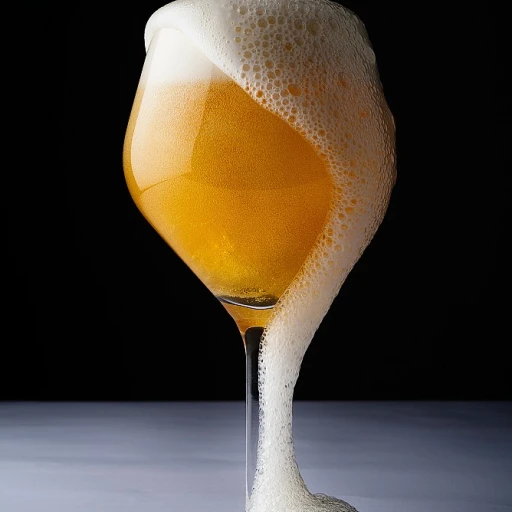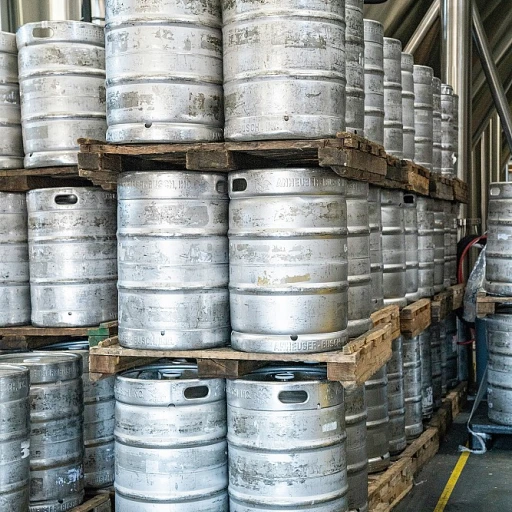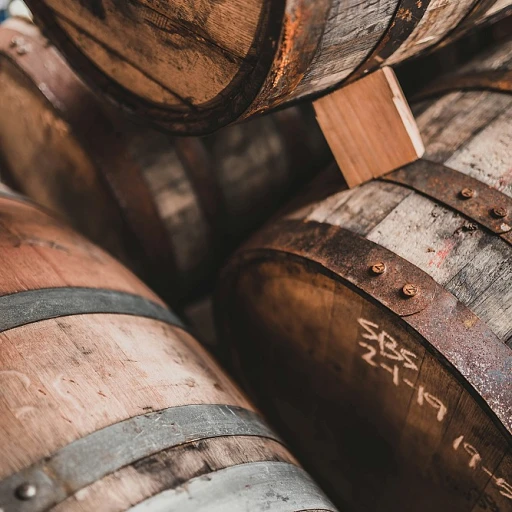
Understanding sulfites in beer and other drinks
What are sulfites and why are they used?
Sulfites are a group of chemical compounds that include sulfur dioxide. They are commonly used as preservatives in food and beverages to prevent spoilage and maintain freshness. In the world of drinks, sulfites are most often associated with wine, but they can also be found in beer, cider, and even some soft drinks.
Where else might you encounter sulfites?
Besides beer, sulfites are present in a variety of products such as dried fruits, pickled foods, and certain sodas. For example, some root beers may contain sulfites to help preserve their flavor and appearance. If you’re curious about unique root beer options, you might enjoy reading about Henry Weinhard’s root beer and its place in beverage history.
Why do sulfites matter to beer drinkers?
For most people, sulfites are harmless in the small amounts typically found in beer. However, a small percentage of people are sensitive to sulfites and may experience allergic reactions. Understanding how sulfites end up in beer and how their levels compare to other drinks can help you make informed choices, especially if you’re sensitive or simply curious about what’s in your glass.
How sulfites get into beer during brewing
Where do sulfites come from in the brewing process?
Sulfites can make their way into beer in a few different ways during brewing. Some are produced naturally by yeast as a byproduct of fermentation, while others might be introduced intentionally or accidentally during various stages of production.
- Natural formation: As yeast ferments the sugars in malted grains, it can generate small amounts of sulfites. This is a normal part of the fermentation process and usually results in low levels compared to other beverages.
- Sanitization and preservation: Some breweries may use sulfites as a preservative or to sanitize equipment. However, this practice is much less common in beer than in wine or cider.
- Ingredient sources: Occasionally, ingredients like dried fruits or certain sugars added to specialty beers may contain sulfites from their own processing.
It's important to note that most beers contain only trace amounts of sulfites, especially when compared to other alcoholic drinks. If you're curious about how handcrafted brewing methods might influence sulfite content, you might enjoy reading about handcrafted brewing and its impact on flavor and quality.
Understanding how sulfites end up in your beer can help you make informed choices, especially if you have sensitivities. The next section will look at how beer compares to wine and cider when it comes to sulfite levels.
Comparing sulfite levels: beer, wine, and cider
How beer stacks up against wine and cider for sulfite content
When it comes to sulfite levels, not all alcoholic drinks are created equal. Beer, wine, and cider each have their own unique profiles, both in terms of how sulfites are introduced and the typical amounts found in the final product.
- Beer: Most beers contain very low amounts of sulfites, often below the threshold that requires labeling. Sulfites can be a natural byproduct of fermentation, but brewers rarely add them intentionally. This makes beer a suitable option for those aiming to minimize sulfite intake.
- Wine: Sulfites are commonly added to wine as preservatives, helping to maintain freshness and prevent spoilage. As a result, wines—especially white varieties—tend to have significantly higher sulfite concentrations than beer.
- Cider: Like wine, many commercial ciders include added sulfites for stability and shelf life. The levels can vary, but they are generally higher than those found in beer.
For those who are sensitive to sulfites, understanding these differences is important. While beer is usually the lower-sulfite choice, always check labels or ask your brewer, as some specialty or imported beers may have higher levels. If you’re interested in how other compounds can influence beer’s character, you might enjoy reading about diacetyl in beer and its impact on flavor.
How sulfites affect beer flavor and quality
How sulfites influence taste and freshness
Sulfites are primarily used in the beverage world as preservatives. In beer, their main role is to help prevent oxidation and spoilage, which can affect both flavor and shelf life. While the amount of sulfites in beer is generally much lower than in wine or cider, even small amounts can have an impact on the final product.
- Flavor stability: Sulfites help maintain the intended taste of beer by slowing down the chemical reactions that cause staling. This means your beer is less likely to develop off-flavors over time.
- Aroma protection: By limiting oxidation, sulfites also help preserve the fresh, hoppy, or malty aromas that brewers work hard to create.
- Minimal taste impact: At the low levels typically found in beer, most people won’t notice any direct taste from sulfites themselves. However, some sensitive drinkers might detect a slight sharpness or a subtle difference in mouthfeel.
Quality considerations for brewers and drinkers
Brewers carefully control the use of sulfites to strike a balance between preserving beer and maintaining its natural character. Too much can mask delicate flavors or create an artificial taste, while too little may lead to a shorter shelf life. If you’re particularly sensitive to sulfites, it’s helpful to know that most craft beers contain very low levels, especially compared to other alcoholic beverages.
For those interested in how sulfites get into beer in the first place, the brewing process and ingredient choices play a key role. Understanding these steps can help you make informed choices about the beers you enjoy.
What to know if you’re sensitive to sulfites in beer
Tips for enjoying beer if you’re sulfite-sensitive
If you know you’re sensitive to sulfites, you might be wondering how to safely enjoy beer. While most beers contain much lower sulfite levels than wine or cider, it’s still important to be cautious, especially if you have a strong reaction to even small amounts.
- Check the label: Some breweries list sulfites on their packaging, especially if levels are high enough to require disclosure. Look for terms like “contains sulfites.”
- Ask your bartender or brewer: If you’re at a taproom or brewery, don’t hesitate to ask staff about sulfite use in their brewing process. Many craft brewers are happy to share details about their ingredients and methods.
- Opt for fresh, unfiltered beers: Beers that are bottle-conditioned or served fresh from the tap may have fewer added preservatives, including sulfites. However, natural sulfites can still be present from fermentation.
- Monitor your reaction: If you try a new beer, start with a small amount and pay attention to how you feel. Symptoms of sulfite sensitivity can include headaches, hives, or respiratory issues.
- Consult your doctor: If you have a diagnosed sulfite allergy or asthma, talk to your healthcare provider about safe beverage choices and what to do if you have a reaction.
Remember, beer generally contains less sulfite than other alcoholic drinks, but it’s always wise to stay informed and listen to your body. If you’re unsure about a particular beer, reaching out to the brewery or checking their website can provide more details about their brewing process and ingredients.













